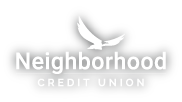
Are You Prepared for the Resumption of Student Loan Payments
Published October 19, 2023
This month, many individuals who have had relief from their student loan payments are gearing up to resume them. The temporary suspension of student loan payments, a measure implemented in response to the COVID-19 pandemic, provided much-needed financial relief for borrowers. However, with payments set to restart, it's essential to be prepared for the transition back into repayment mode. In this blog we’ll discuss what you need to know, the different types of repayment options, and how to take action to tackle your payment with confidence.
What You Need to Know
Payment Amount: One of the first questions borrowers often have is, "How much will my monthly payment be?" It's crucial to confirm the amount, including any changes that may have occurred during the suspension period. Your monthly payment can be influenced by factors such as the type of loan, interest rate, and outstanding balance. To get precise information, contact your loan servicer.
Payment Due Date: Knowing your payment due date is essential to avoid late fees. Some servicers may offer flexibility in choosing a due date that aligns better with your financial circumstances, so it's worth exploring this option. However, keep in mind that your due date may also be influenced by the terms of your loan agreement.
Payment Method: Verify the preferred method for making payments. Many borrowers opt for automatic payments, which can simplify the process and may even come with incentives or discounts. Setting up automatic payments not only ensures timely payments but can also save you money in the long run.
Loan Forgiveness or Repayment Options
If you're interested in exploring loan forgiveness programs or alternative repayment options, now is an excellent time to do so. Depending on your current financial situation, you may qualify for various programs. Currently under the Biden Administration, there are four different Federal Loan Forgiveness Programs:
Income-Driven Repayment (IDR): For borrowers enrolled in IDR plans, if they still have an outstanding loan balance at the end of their 20- or 25-year loan term, the government will forgive the remaining debt amount.
Perkins Loan Forgiveness: Individuals with Perkins Loans may be eligible for complete forgiveness of their loans, up to 100%, based on their employment. This opportunity is open to teachers, first responders, and certain volunteer workers.
Public Service Loan Forgiveness (PSLF): PSLF is a program designed for employees in nonprofit and government positions who serve in public service roles for a minimum of 10 years and make 120 monthly payments. It's important to note that payments made under an IDR plan also qualify for PSLF.
Teacher Loan Forgiveness: Teachers in elementary and secondary schools working in low-income areas can potentially receive loan forgiveness of up to $17,500 after completing five years of service.
Temporary Hardship Assistance
Life can throw unexpected financial curveballs. Familiarize yourself with any forbearance or deferment options available to you in case you encounter temporary financial difficulties. These options can provide temporary relief by allowing you to temporarily stop making payments or reduce your monthly obligation.
Taking Action
To ensure a smooth transition back into student loan repayment, consider taking the following steps:
Contact Your Loan Servicer: Reach out to your loan servicer to discuss your specific situation and get answers to any questions you may have. They can provide personalized guidance based on your loan details.
Review Your Budget: Take a close look at your budget to ensure you can comfortably accommodate your student loan payments. It may be necessary to make adjustments to your spending habits to ensure financial stability
Set Up Automatic Payments: As we mentioned before, consider setting up automatic payments to streamline the process and reduce the risk of missing a payment. It's a convenient way to ensure you meet your financial obligations.
Explore Repayment Options: Investigate loan forgiveness and alternative repayment options to find the one that best suits your financial goals. These programs can potentially lower your monthly payments or lead to eventual loan forgiveness.
Stay Informed: Keep an eye on any changes or updates related to student loan policies and regulations that may affect your repayment. The landscape of student loans can change, so staying informed is crucial.
Explore Repayment Options: Investigate loan forgiveness and alternative repayment options to find the one that best suits your financial goals. These programs can potentially lower your monthly payments or lead to eventual loan forgiveness.
Stay Informed: Keep an eye on any changes or updates related to student loan policies and regulations that may affect your repayment. The landscape of student loans can change, so staying informed is crucial.
Conclusion
As student loan payments prepare to make their return, being well-prepared and informed is the key to managing this financial responsibility effectively. By proactively addressing any questions or concerns and exploring your repayment options, you can navigate the process with confidence and take control of your financial future.
Remember, you're not alone in this journey, and there are resources available to help you make informed decisions about your student loans. Stay responsible, stay informed, and stay on the path to financial success. Your commitment to responsible repayment will ultimately pave the way to a debt-free future.
Remember, you're not alone in this journey, and there are resources available to help you make informed decisions about your student loans. Stay responsible, stay informed, and stay on the path to financial success. Your commitment to responsible repayment will ultimately pave the way to a debt-free future.

Skyler has been a Marketing Content Specialist at Neighborhood Credit Union since 2019.
Who We Are
As an active part of the community for 93 years, Neighborhood Credit Union is a not-for-profit financial organization serving the state of Texas with branch locations in Collin, Dallas, Denton, Ellis, and Tarrant counties. With assets topping $1 billion, Neighborhood Credit Union has a continuously growing membership of over 60,000. For more information, call (214) 748-9393 or visit our homepage.
07/31/2023
Is 30 Too Young for Retirement?
02/14/2023
What is the NCUA?
11/09/2023

